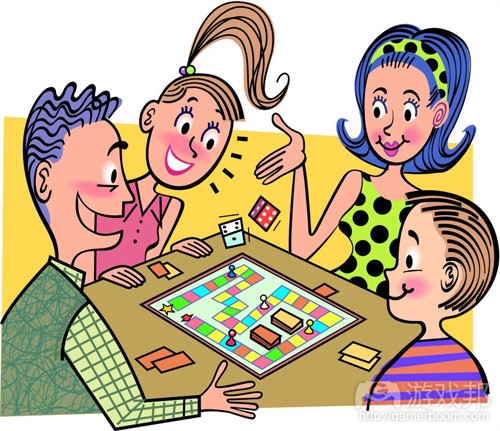游戏的潜在益处能让我们的生活更美好
作者:Sande Chen
几乎所有玩家都会有这样的经历:有些人(游戏邦注:通常是家长或老师,有时候也会是同事或合作伙伴)曾告诫过他们,如此沉迷于游戏中只会消磨自己的脑力。尤其是游戏设计师,当他们交谈的对象不是玩家本身时,游戏设计师们便不得不以“无害”之面武装自己。不管怎样游戏都是有趣的,但是它们是否显得有点愚蠢?难道玩游戏只是一种浪费时间的行为?幸运的是,有关研究表明些问题的答案都是否定的。玩电子游戏将增强玩家的批判性思维,教会他们像合作等技能,并帮助他们在生活中取得更大的成功。并不只有教育类游戏才能提供这些好处;不管你选择的游戏类型是什么,你最喜欢的游戏都有可能推动你的生活向前发展。
问题解决与批判性思维
孩子们去扮演其它角色的一大原因便是为了更好地了解自己的世界。通过在不同情境下发挥想象力,他们便能够学会如何对自己在现实生活中不曾遇到的情况做出回应。我们可以将其当成是对他们大脑,情感和问题解决技能的一种测试。我们从来不会失去从这些游戏中获得学习的技能,这也是电子游戏在提升我们批判性思维时所做到的。虽然人类的思维是一种复杂的仪器,它却有能力去处理电子游戏等沉浸式媒体与活跃的体验。新的体验将推动新视角的出现,反过来这也将鼓励人们在日常生活中想出创造性解决方法。
游戏同样也能帮助玩家在紧张的环境下进行快速思考:即使在一个特别紧张的任务过程中,你能通过逻辑判断出自己是安全的,但是快速跳动的心脏以及急冲的肾上腺素都将导致你的身体变得僵硬。下次当你面对高压且快节奏的任务时,请想想你在玩游戏时是如何对此情况做出反应,你将通过一个全新视角而重新掌控局面。
社区和团队合作
不管你是与自己的好友或家人分享一个真实空间,或者与自己在城市中从未见过的某些人合作,游戏都可以作为一种团体运动。与其它团体运动一样,这些游戏也能够培养社交技能,并适用于你们生活中的其它环节。甚至连商业界也意识到了潜在游戏能够推动社会的发展,《福布斯》上有一篇文章便突出了合作类游戏能够促进联合,资源分配以及团队合作。即使玩家离开了游戏,这种好处也仍会继续。有关健康游戏的文字经常会强调“(在线)游戏将创造出活跃的网络社区,玩家将频繁地访问粉丝网站,论坛和共享数据库,并在此讨论开发,战术和游戏玩法。”尽管社交媒体将这类型的互动变得更加普遍,但是这些社区都较为严谨,能够培养玩家在Facebook所学不到的社交技能。
放松和创造性
考虑到社会的发展速度,许多人都不敢轻易松懈下来,否则就需要为此寻找足够的借口。请忘记所有的这些束缚;任何能够让你感到放松的事物都是有益的;因为这些幸福时刻能够帮助你积蓄更大的创造性,保证更健康的身体并避免焦躁的心态。与其它爱好一样,游戏也能够帮助玩家从“现实生活”中松口气,并且待在游戏中也是一种充电的机会。如此来自工作上的压力将逐渐消失,但是你的思维却并未松懈,所以这能算是一种健康的兴趣。游戏(特别是沉浸式游戏)同样也能够推动创造性和想象力的提高。兜了一圈,它们最终回到了孩子们的伪装游戏,即能够点燃我们对于故事以及周边世界的兴趣。
很久以前,玩家被当成是带有糟糕人类技能的古怪之人。但是游戏已经发生了改变,人们也发生了改变,更重要的是这种认知也发生了改变,至少正处于变化过程中。通过研究去支持这种认知的变化,我们能够对游戏提供给玩家与整个社会的利益感到自豪。
(本文为游戏邦/gamerboom.com编译,拒绝任何不保留版权的转载,如需转载请联系:游戏邦)
Life XP: Why Gaming Makes Us Better
by Sande Chen
Almost all gamers can share a variation on the same story: someone – often a parent or a teacher when they were younger, but sometimes a colleague or a partner – has told them that they’re dulling their mind by playing so many games. Game designers in particular often get it in spades; if the person they’re talking to isn’t a gamer themselves, they often have to steel themselves for “harmless” asides. Games are fun, after all, but aren’t they a little – you know – silly? Aren’t games just a brain-draining time-waster? Luckily, exciting research suggests that the answer to that question is a resounding no. Playing video games appears to sharpen critical thinking, teach skills like collaboration, and otherwise prep gamers to succeed in life. It’s not just educational games which confer these benefits either; no matter your chosen genre, your favorite games are likely to give you a boost in life.
Problem-Solving & Critical Thinking
One of the reasons children play make-believe is to learn about their world. By imagining themselves in different situations, they learn how to react to situations they probably haven’t encountered in their real lives. Consider it a test drive for their brains, emotions, and problem-solving skills. We never lose the capacity to learn from these kind of games, and this is exactly the well that video games draw from when they increase our critical thinking. For all that the mind is a complex instrument, it also has the ability to process immersive media, such as video games, as lived experiences. New experiences promote new perspectives, which in turn encourage creative solutions in everyday life.
Games also help to fine-tune your ability to think quickly under stressful circumstances: even if you logically know that you’re safe in the middle of a particularly tense mission, your pounding heart and adrenaline rush probably have your body fooled. Next time you have a stressful, fast-paced day at work, think about how you’d react to it if you were playing – it’s a surprising hack might help you regain control of the situation by looking at it from a new angle.
Community & Teamwork
Whether sharing real space with your friends or family, or collaborating with someone you’ll never meet in a city you’ll never visit, gaming can be a team sport. Just like any other team sport, these games can foster social skills which are applicable to every other part of your life. Even businesses have realized the potential games have to spur social development, with Forbes running a story which highlighted the ways in which collaborative gaming trains players in alliance-building, resource allocation, and teamwork. Even after players leave the game itself, the benefits continue. Stories on healthygame-playing often note that “[online] gaming tends to spawn lively and active Internet communities, with gamers frequenting fan sites, forums, and shared databases to discuss developments, tactics and gameplay”. Although social media has made this sort of interaction commonplace, these communities can be highly close-knit, encouraging social skills in a way Facebook can’t compete with.
Relaxation & Creativity
Given the pace society runs at, many people feel like relaxation is a slightly taboo act, something they have to find legitimate excuses for. Forget all of that; anything which relaxes you is beneficial by its very nature, since it’s those moments of happiness which allow for greater productivity, a healthier body, and a less manic mind. Like other hobbies, gaming has the potential to be a relaxing break from “real life”, but it’s also a way to recharge while staying engaged. The stress of work might fade away, but your mind is still active and focused, the hallmark of a healthy hobby. Games – particularly immersive ones – also promote creativity and increased imagination. In this, they come full circle back to the make-believe games of children, with the power to ignite an interest in storytelling and the world around us.
Once upon a time, gamers were seen as unsuccessful weirdos with poor people skills. Games have changed, and people have changed, but more than anything it’s this perception which has changed – or is, at least, in the process of changing. With research to back up these shifts in understanding, it’s possible to be proud of what gaming offers both players and society in general.(source:blogspot)








































 闽公网安备35020302001549号
闽公网安备35020302001549号